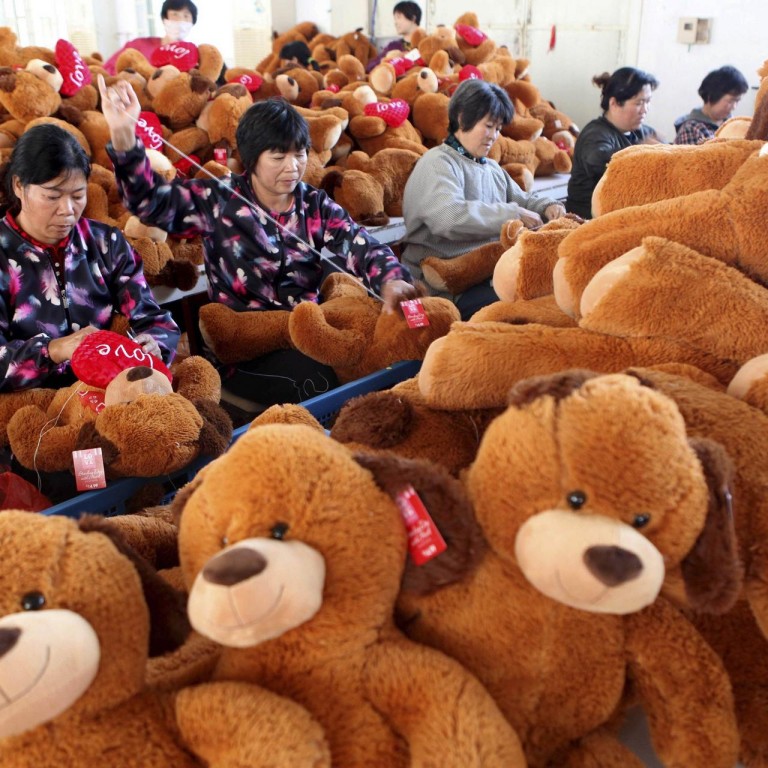
Growth in China's factory sector eases as export orders decline
Weaker export orders and output lead to decline in PMI but overall economy remains resilient
Growth in the mainland's factories slowed slightly last month as export orders and output weakened, official data showed yesterday.

The official purchasing managers' index, published by the National Bureau of Statistics, dipped to 51.
Economists polled had expected the index to ease to 51.2 from November's 51.4. The 50-point mark separates an expansion in activity from a contraction.
Many economists have said the mainland economy was likely to show weaker momentum in the final quarter after a rebound between July and September, because of slowing credit growth and a fall-off in restocking demand.
"Both domestic and overseas demand was weaker than expected. Domestically, tight liquidity is weighing on factory output and orders," said Li Heng, an economist at Minsheng Securities in Beijing.
"The economy is under some downward pressure, but the slowdown remains modest. We still need to observe the trend [in the coming] year. We think [fourth-quarter] growth should be 7.7 per cent and the same for [the first quarter of] 2014."
Li said he saw economic growth for this year at about 7.5 per cent.
The government has said industrial output may have grown 9.8 per cent last year and economic growth could come in at 7.6 per cent, just above the official target of 7.5 per cent and slightly below the 7.7 per cent pace in 2012.
Sources at top government think tanks said this week that the government would likely set a 7.5 per cent growth target for this year.
The PMI survey showed new export orders contracted in December for the first time since July, with the sub-index at 49.8 from November's 50.6, pointing to weakness in overseas demand.
Manufacturing employment contracted further, with the sub-index falling to 48.7 from 49.6 previously.
"The decline in the December PMI points to some slowdown in economic growth," said Zhang Liqun, an economist at the Development Research Centre, which helps compile the index.
"Industrial output growth is likely to slow in the future, and export growth could also ease, showing the economy still faces some downward pressure."
The official PMI broadly mirrors a preliminary PMI survey released in the middle of last month by HSBC and Markit Economics, which showed activity in the factory sector grew at the slowest pace in three months owing to subdued output.
The final HSBC/Markit PMI is due to be released today. It is more weighted towards smaller and private companies than the official one, which contains more large and state-owned enterprises.

